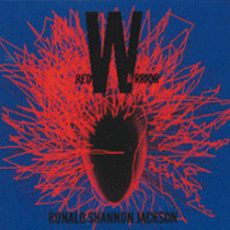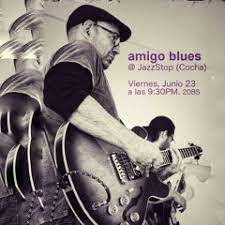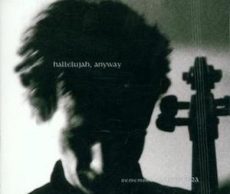
Daily Dose O fJazz…
Ronald Shannon Jackson was born on January 12, 1940 in Fort Worth, Texas and as a child he was immersed in music. His father monopolized the local jukebox business and established the only African American-owned record store in the metropolitan area. His mother played piano and organ at their local church. Beginning at age five until nine he took piano lessons and in the third grade he studied music with John Carter. He graduated from I.M. Terrell High School, where he played with the marching band and learned about symphonic percussion. By the age of 15, he was playing professionally. His first paid gig was with tenor saxophonist James Clay.
Attending Lincoln University in Jefferson City, Missouri gave him access to St. Louis, Missouri and the musicians touring the Midwest. His roommate was pianist John Hicks and his bandmates also included Lester Bowie and Julius Hemphill. Transferring first to Texas Southern University, then to Prairie View A & M before landing at the University of Bridgeport in Connecticut studying history and sociology. In 1966, through trumpeter Kenny Dorham he attended New York University on a full music scholarship.
Once in New York City he performed with many jazz musicians, including Charles Mingus, Betty Carter, Jackie McLean, Joe Henderson, Kenny Dorham, McCoy Tyner, Stanley Turrentine, Charles Tyler and Albert Ayler. By 1975 he joined Ornette Coleman’s electric free funk band, Prime Time, where he learned composition and harmolodics. He would go on to play Paris, France, record four albums with Cecil Taylor, and formed his band, The Decoding Society, in 1979. In addition to leading Decoding Society lineups, guitarist James Blood Ulmer recruited Ron for another group.
Continuing to push the envelope over the next few years he formed several groups including Last Exit, SXL, Mooko, and Power Tools. Jackson joined trumpeter Wadada Leo Smith’s Golden Quartet, then played with the Punk Funk All Stars, and toured Europe with The Last Poets. In 2011 he formed a power trio called Encryption.
Drummer Ron Jackson who recorded nineteen albums as a leader, six with Last Exit and as a sideman fifteen with Albert Ayler, James Blood Ulmer, Cecil Taylor, SXL, Music Revelation Ensemble, and Ornette Coleman, died of leukemia on October 19, 2013, aged 73.
More Posts: bandleader,history,instrumental,jazz,music,percussion

Daily Dose Of Jazz…
Eugene Chadbourne was born January 4, 1954 in Mount Vernon, New York but grew up in Boulder, Colorado. He started playing guitar when he was eleven or twelve, inspired by the Beatles and hoping to get the attention of girls. Although he was initially drawn to Jimi Hendrix and played in a garage band, he found rock and pop music too conventional. Gravitating to the avant-garde jazz of Anthony Braxton and Derek Bailey, it was the former musician who persuaded him to abandon his journalism endeavors and pursue music.
During the early 1970s, he lived in Canada to avoid military service in the Vietnam War. Returning to the United States, he moved to New York City and played free improvisation with Henry Kaiser and John Zorn. Around this time, he released his first album, Solo Acoustic Guitar. In the early 1980s, he led the avant-rock band Shockabilly with Mark Kramer and David Licht.
He explored other genres, playing with a Cajun band, a Russian folk band and mixed country, western, and improvisation in the band LSD C&W. For many years Eugene was in a duo, and then worked with Han Bennink, Fred Frith, Elliott Sharp, and Charles Tyler..
Chadbourne invented an instrument known as the electric rake by attaching an electric guitar pickup to a rake. He played a duet of electric rake and classical piano with Bob Wiseman on his 1991 album Presented by Lake Michigan Soda. He also played the instrument on a Sun Ra tribute album.
Banjoist, guitarist and music critic Eugene Chadbourne, who has recorded 39 albums as a leader, continues to perform and record.
More Posts: bandleader,banjo,critic,guitar,history,instrumental,jazz,music

Daily Dose Of Jazz…
Cristian Amigo was born on January 2, 1963 in Santiago, Chile and emigrated with his family to the United States as a child. At twelve he began studying music with Joseph Torello in New Haven, Connecticut. Two years later the family moved to Miami, Florida where he began performing professionally with Six Feet Under, a rock band he formed. While attending Hialeah-Miami Lakes Senior High School he taught classes in guitar to his peers and took courses in music theory, classical guitar and jazz at Miami-Dade Community College.
By the time he turned 17 he was in the music program at Florida State University studying classical guitar. With an Associate of Arts diploma he returned to Miami, began actively performing in recording sessions and original and cover bands while attending music classes at University of Miami. His first recording session at 17 was producer Narada Michael Walden’s We Don’t Have To Take Our Clothes Off.
He moved to Los Angeles, California and earned his bachelor and master degrees and studied jazz with Kenny Burrell and Gary Pratt, and the sitar with Harihar Rao. He studied composition with Wadada Leo Smith. While a university student Amigo made a living as an assistant travel agent, a janitor, a session guitarist, band leader, music producer, film composer, jingle producer, concert producer, music teacher and performed in a number of bands.
He worked as a session guitarist with artists including Hans Zimmer, Mark Mancina, Jay Rifkin, Les Hooper, Wadada Leo Smith, David Ornette Cherry, John Van Tongeron, Justo Almario, and others.
His awards include the John Simon Guggenheim Fellowship in music composition, a Senior Fulbright Scholar/Teacher/Artist Award and the Van Leir Fellowship from Meet the Composer. His work has been supported and/or produced by numerous New York organizations, the Danish Arts Council, Smithsonian Institution Center for Folklife and Cultural Heritage and others too numerous to mention.
Guitarist and composer Cristian Amigo continues to compose, perform and record.
More Posts: guitar

Daily Dose Of Jazz…
Stanley William Tracey was born on December 30, 1926 in Denmark Hill, South London, England. The Second World War disrupted his formal education, and he became a professional musician at the age of sixteen as a member of an Entertainments National Service Association touring group playing the accordion, his first instrument. He joined Ralph Reader’s Gang Shows at the age of nineteen, while in the RAF and formed a brief acquaintance with the comedian Tony Hancock.
Later, in the early 1950s, he worked in groups on the transatlantic liners Queen Mary and Caronia and toured the UK with Cab Calloway. By the mid-1950s, he had also taken up the vibraphone, but later ceased playing it. During the decade he worked widely with leading British modernists, including drummer Tony Crombie, clarinettist Vic Ash, the saxophonist-arranger Kenny Graham and trumpeter Dizzy Reece.
1957 saw Tracey touring the United States with Ronnie Scott’s group, and then became the pianist with Ted Heath’s Orchestra for two years at the end of the Fifties, including a US tour with singer Carmen McRae. Although he disliked Heath’s music, he gained a regular income and was well featured as a soloist on both piano and vibes. He contributed compositions and arrangements that stayed in the Heath book for many years.
He first recorded in 1952 with the trumpeter Kenny Baker, then recorded his first album as leader in 1958, Showcase, for English Decca label and Little Klunk in 1959. From 1960 until about 1967 Stan was the house pianist at Ronnie Scott’s Jazz Club in Soho, London, which gave him the opportunity to accompany many of the leading musicians from the US who visited the club. It is Tracey on piano that film viewers hear behind Rollins on the soundtrack of the Michael Caine version of Alfie. At the same time, he became active in Michael Horovitz’s New Departures project, mixing poetry performances with jazz, where the musicians interacted spontaneously with the words.
The early 1970s were a bleak time for Tracey. He began to work with musicians of a later generation, who worked in a free or avant-garde style. He continued to work in this idiom with Evan Parker at the UK’s Appleby Jazz Festival for several years, but this was always more of a sideline for Tracey, lasting 18 years that the festival existed. Stan formed his own label In the mid-1970s titled Steam, and a number of commissioned suites. These included The Salisbury Suite, The Crompton Suite and The Poets Suite.
He led his own octet from 1976 to 1985 and formed a sextet in 1979 and toured widely in the Middle East and India. He had a longstanding performance partnership from 1978 with saxophonist Art Themen, and his own son, drummer Clark Tracey. He shared the billing with arranger Gil Evans, Sal Nistico and Charlie Rouse. He went on to record over four dozen albums as a leader or co~leader, thirty as a sideman and on two soundtracks over the course of his career.
Pianist and composer Stan Tracey, who received the honor of the Officer of the Order of the British Empire (OBE) and appointed Commander of the Order of the British Empire (CBE), transitioned from cancer on December 6,
More Posts: bandleader,composer,history,instrumental,jazz,music,piano

Daily Dose Of Jazz…
Carlos Zíngaro or Carlos Zíngaro Alves was born December 15, 1948 in Lisbon, Portugal. He studied classical music at the Lisbon Music Conservatory from 1953 to 1965, and during the years 1967/68 he studied pipe organ at the Sacred Music High School and did studies on musicology and electroacoustic music.
During the 1960s, he was a member of the Lisbon University Chamber Orchestra. In 1967 he formed the musical group Plexus. He has performed at music festivals in Europe, Asia and America. He has recorded more than 50 albums under his name or in collaboration with other musicians and composers.
Zingaro was a founding member and director of the Lisbon art gallery Cómicos from 1984 till 1990, and his work has been exhibited, and he was awarded several prizes for his illustration, comics and paintings. Samples of his work can be seen on a number of CD sleeves. Since 2002 he is the founder and president of experimental arts and music association Granular.
Violinist and electronic musician Carlos Zingaro, who is active in free improvisation, continues to perform and record.
More Posts: adventure,bandleader,history,instrumental,jazz,music



